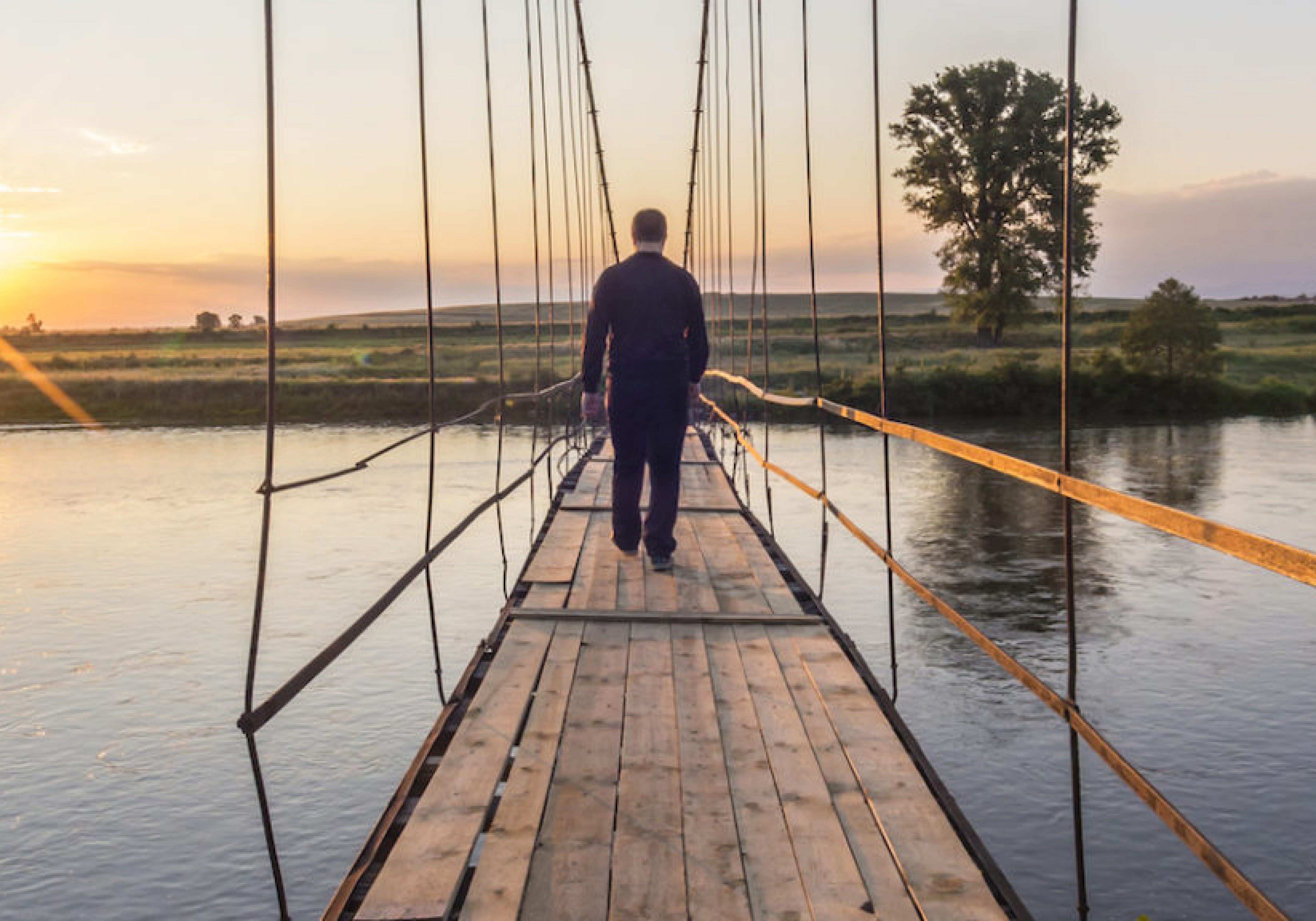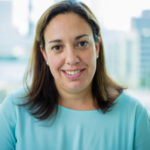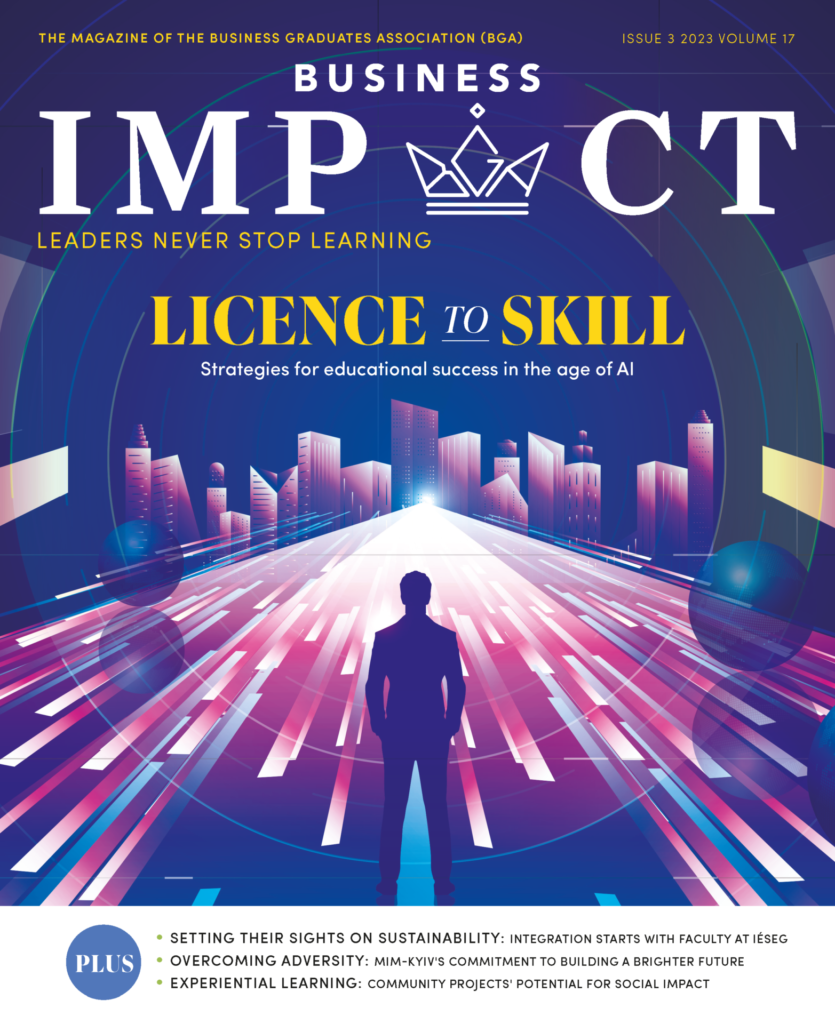Why upskilling on sustainability must begin with faculty


How are you working to incorporate corporate social responsibility (CSR) and sustainable development into Iéseg’s programmes and how are you measuring the success of initiatives to implement them?
“This is our number one priority for the next year. We’ve had mandatory CSR courses since 2016 and our students now have access to several such courses, but we are aiming to have full integration of sustainability into all our different programmes and management disciplines by 2026.
“We can only achieve that if we train all our professors and staff to ensure that everybody speaks the same language and understands how and why we’re doing it. In February, we launched a compulsory training programme for all our staff and professors on the basics of climate change and planetary boundaries.
“The programme ends with workshops where each academic department or administrative service develops roadmaps with KPIs or ambitions for the next five years. The objective is that by the end of the first modules, professors will be rethinking their courses. We then expect this to be reflected in curricula by September 2024. Of course, tracking this without making it too bureaucratic is a key challenge and we are still thinking about the best way of doing this.
“This year, we are also asking professors and staff how they integrate sustainability into their day-to-day jobs as part of their annual performance evaluation. Salaries and promotions depend on these evaluations, so I think it sends a very strong signal in terms of the importance the school places on sustainability.”
How has reaction to the programme been from staff and faculty? Are they concerned about the perceived implications for their workload?
“We’ve had a few challenges and there has been some resistance. However, this has been from a minority and ultimately, we’ve been surprised by the positive reaction. We’ve also found that people have already started integrating some of these topics and conversations into their courses. Of course, we still need to help some of these faculty members do it in a more coherent, transversal way.
“The question of the added workload was definitely raised, but we’ve tried to have more one-on-one conversations with those who were more sceptical initially. At the same time, a lot of faculty members are happy to learn more about the climate and planetary boundaries because it’s something they’re starting to see more and more in their own field and research.”
Earlier this year, you took part in a panel on upskilling for a sustainable future as part of Economist Impact’s Sustainability Week. Could tell us what you spoke about?
“I was speaking about the growing need to upskill and retrain managers, leaders and students. Specifically, how companies and higher education institutions can work in a collaborative fashion to drive this upskilling process. Companies have set very ambitious goals related to net zero. But without the right educational process, we won’t be able to achieve those goals.”
Who do we need to get in the classroom?
“We need to get everyone in the classroom. It needs to start with the governance and leadership because these changes cannot take place without them being on board. However, to drive change and achieve these goals, every single person in a company needs to go through this process. We also need to touch on every kind of job and industry and that’s a huge challenge.”
How do you envisage collaborative processes working between schools and companies?
“Sometimes companies forget that business schools are also there to help them drive transformation and that we have expertise in developing knowledge, skills, competencies and, I would even say, passion on these topics. So, we have to establish these relationships.
“We also need to bring companies closer to our students. We need to get them in the classrooms and collaborating on projects; that way, they can listen to students’ expectations and share what they need in terms of graduate skills.”
How might the classroom approach need to change in relation to company talks and industry exposure?
“We have mostly had a top-down approach to how companies interact with students where they simply give a talk about what they do and answer questions. This kind of discourse doesn’t work anymore because students want more – they’re questioning what companies are doing and they want to be part of the change. They don’t just want a company to tell them: ‘This is our strategy’ or ‘this is why we’re great’. They want to know what’s really happening and how they can play their part when they graduate. Imagining different pedagogical approaches where they see behind the scenes of corporate storytelling is crucial.”
Does the biggest shortfall on sustainability relate more to issues of awareness or technical knowledge right now?
“I think it’s both. An issue of awareness remains – there are still people who are not convinced this is a major problem. There’s big work to be done, but with that comes a big challenge that relates more to the hard sciences of what climate change is.
“We can talk about upskilling all we want, but we need to explain the science behind it, so people understand what that means and the implications it has for their business – both the risks and the opportunities. Just talking about achieving net zero and telling them this is their new objective and how they’re going to be measured doesn’t work.”
You coordinate Iéseg’s People-Planet-Profit project – can you tell us more about it?
“This is a mandatory consulting project at bachelor’s level, meaning about 1,250 students do it at the same time, so it’s massive. For a full term, we split students into groups and match them with a company for a sustainability project. About 18 months ago, this became an interdisciplinary project. During the same term, students now have six different courses, such as digital innovation, sustainability and financial analysis, and they need to integrate what they learn in all those disciplines into the project. The aim is to show students sustainability is not a standalone discipline.”
How many companies have you worked with in delivering this project and what kind of sizes and sectors are involved?
“The project has been running since 2016 and we’ve worked with more than 35 companies, from huge multinationals to smaller family businesses and start-ups. We’ve also started to work with Certified B Corporations because we signed a partnership with the non-profit B Lab network.
“A source of differentiation in this project is that we also work with cities. Some students get assigned to small cities in the areas of Paris and Lille. These students work on urban issues of sustainability, rather than corporate issues. We are a management school and that also involves public management.”
You also help run the Grand Challenges MBA module. How does this differ from the undergraduate project?
“The Grand Challenges module is broader and is where we can really go through the big issues in sustainability today, such as understanding climate change and the implications for companies and society. We do this through small blocks of courses on key topics and then go on a learning expedition to discover how sustainability is being implemented in a specific region. The students then undertake an ‘integrative project’ and work on a transformation plan.
“The aim here is to bring together the sustainability skills they’ve learned through the different modules in relation to their professional life, which is particularly useful for executive MBA students. We also talk about stakeholders, as well as new legislation around the world. It’s about understanding how all this is going to change the way they do their jobs.”
The focus is on a different geographic region each year – why is that?
“We thought it would be interesting to do a deep dive into a specific area. This year, it was Bologna, Italy, known for its automotive industry. We stay in Europe because we try to be as sustainable as possible, but there are still so many things to be discovered. Every country has different ways of approaching these topics and individual industries have distinct challenges.
“It’s also great to get students on the ground and show them what’s happening in companies because this is not always aligned with the discourse we hear at a more macro level. Seeing how communities are affected and how local governments are managing sustainability, how they’re collaborating with companies on initiatives – all this is very much tied to a particular region and the industries based there.”
Can you tell us more about the recently launched, student-led Climate Lab?
“The idea of this course is to experiment with a student-led course, where the professor is just there as a guide. Some of our students are very passionate about climate change and they want to learn more, so we thought we’d give them the space to do it.
“The students must come up with what they need to learn and how they need to learn it. They talk to some alumni and companies and develop a learning process. It’s designed to be an elective each term and we had about 12 students in the first cohort that launched earlier this year in the grande école programme for master’s students.
“We are still experimenting and evaluating, but we’re definitely continuing it and could have similar formats for different disciplines and not just climate change. We would need to keep it to smaller groups, which would make it a challenge if we ever wanted to make it mandatory, but I think we could scale it up into our MBA programme or specialised master’s programmes.”
You initiated the Responsible Leaders project about five years ago; what are its main aims and outcomes?
“Again, we saw that a lot of students want to engage more with the school on sustainability topics. The idea for the Responsible Leaders initiative was, therefore, to give students a space to engage with us. In it, volunteers work on sustainability projects. This has been ongoing since 2018 and this year, we have about 20 students who are Responsible Leaders.
“What’s been nice is many of the projects proposed and driven by the students have come to life. For example, during Covid-19, the Responsible Leaders proposed a sustainability certificate. This is where students get points for taking electives, attending conferences and events or doing internships and thesis projects on topics relating to sustainability. It’s an engagement certificate rather than anything academic, but we want to reward that student engagement. If students achieve a minimum number of points, they receive an additional diploma when they graduate.
“Students worked on this project from start to finish and were the ones who presented it to our dean and academic commission. In addition, one of them remains a student Responsible Leader and now oversees the sustainability certificate, as well as working as an intern in our team. I think that it is extremely rewarding for students to see their proposals are implemented.”

Maria Castillo is social and environmental director at Iéseg School of Management, where she is also a senior professor in corporate social responsibility, business ethics and strategy
This article originally appeared in the print edition (Issue 3 2023) of Business Impact, magazine of the Business Graduates Association (BGA)


